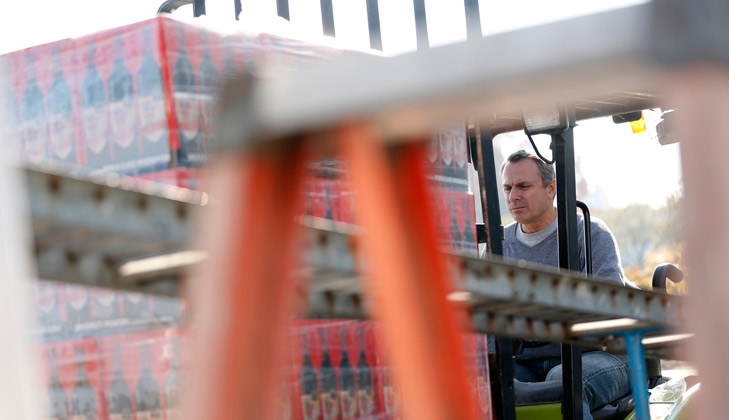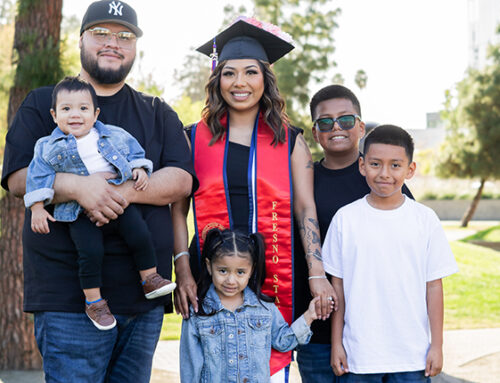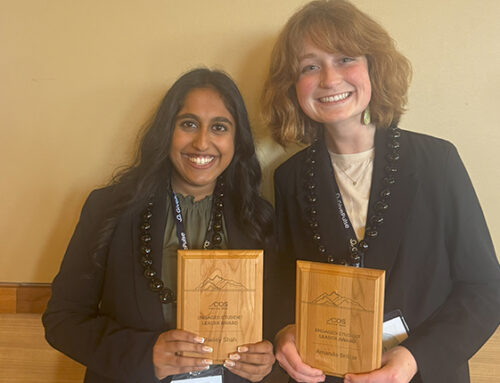Fresno State Winery business and marketing manager Kevin Smith knows student-produced products have a special place in the hearts of Central Valley consumers, and he is finding ways to continue to serve the community during the national economic downturn.
Since the COVID-19 pandemic’s changes to restaurant and store access, Smith sensed consumer needs were quickly changing so he created a host of new winery promotions. Shoppers have enjoyed $5 in-state shipping for any size purchase since then, as well as sales of up to 30% off on many favorite wines.
While his wholesale wine sales have dropped by about 30%, direct sales have increased by about 500% as consumers have turned to shopping online. Not surprisingly, both promotions will continue indefinitely while supplies last.
That shift has meant that about 90% of sales in recent months have come from direct orders over the phone or via the winery website, compared to the past, when 90% came from wholesale orders from stores and restaurants.
“If you’re a wine consumer this is a great time,” Smith said. “There’s a lot of competition to deliver wine to your doorstep, or to other people as gifts, which is a big part of the market. We have spent much more attention on our website, social media and wine clubs to make it easier to shop and relate what makes us special.”
The campus winery has previously relied largely on in-person sales on campus at the Gibson Farm Market; nearby off-campus outlets Save Mart Supermarket, Trader Joe’s, Costco and the Meat Market in Clovis; and other large wine and alcohol industry stores like BevMo and Total Wine. However, those off-campus relationships take time to nurture and order sizes can fluctuate based on space availability and competition.
“The past few months can help smaller wineries that have strong ties to their customers and can ship directly to them, affordably,” Smith said. “The wine business has always been competitive, but we’re starting to see fewer buying channels, and retailers are a little more anxious to see their product move quicker. Some have turned to the larger conglomerates to fill larger parts of their selection, and rely less on smaller businesses, just like other parts of the economy.”
The pandemic has not slowed production at the campus winery this spring, which has added new personal safety and social distancing measures. Students from the Viticulture and Enology Department have helped bottle 6,000 cases of 24 different varieties of wine over the course of four bottling dates this spring.
Later this summer, the winery expects to do its first-ever canning of its Tailgate Red, White and Rosé series. The 12.6-ounce cans (375 milliliters) are about half the size of most bottles of wine, and will be available at the Gibson Farm Market and at Fresno State athletic events when they resume.
The campus winery’s recent adaptations are also a credit to the arrival of Fresno State alumnus Tom Montgomery as its winemaker in August 2017. Thanks to his nearly 40 years of experience and connections with nationally-respected vineyards, the winery has expanded its line with vintages featuring grapes from other high-profile growing regions.
Recent noteworthy Fresno State bottlings have included its Zinfandel from Napa Valley, Chardonnay from the Sonoma area, Sauvignon Blanc from the Russian River Valley, Sergeant Zinfandel from the Amador Valley and Petit Verdot and Petite Syrah from Contra Costa County.
The remaining varieties of the 22 wines currently available are largely familiar. Nearly 60 percent of the winery’s fruit is sourced from the 120-acre campus vineyard, as well as from nearby Papagni, Saviez and Toca Madera vineyards.
The Fresno State Winery, which opened in 1999, is a labor of love for students, staff, faculty and alumni who take pride in being a part of the first winery on a college campus, and still the largest.
Its main mission is to encourage students to get hands-on training in all phases of processing, sales and marketing through classes and volunteer opportunities. A full-time intern, senior enology student Brenna Pratt is assisting Montgomery, and other part-time students like enology senior John Skrip help throughout the year.
On the sales and marketing side, recent agricultural business graduate Natasha Milanez just finished her third year as a student assistant. Her lengthy job description includes helping manage orders and shipping; overseeing the website and wine club; confirming inventory; coordinating other clerical work and logistics; and assisting on wine processing days.
Virtual classes have kept most other students at home since late March, but the Dinuba resident has still made the hour-long drive to work on campus every weekday. She plans on working full-time through mid-August to help manage the increased sales and keep the operation running smoothly.
Among the recent promotions, she noted that many customers have taken advantage of the curbside pick-up option with their online orders. She also created and coordinated a multi-case delivery to her hometown through a local Facebook group page post.
“I didn’t know much about wineries before I started,” Milanez said, “but I’ve picked up a lot of great skills, and I hope to do something similar for a career. One of the most enjoyable parts of the job is customer service. I know it’s not the favorite part of the job for some people, yet that’s how you develop your professionalism. Just like our customers, I’ve created a lot of friendships that are tied to our products, the campus and our staff. I want to leave a legacy that people will remember.”
Smith, now in his seventh year with the winery, also enjoys that personal connection with customers and students, and is a three-time Fresno State graduate himself, with an MBA degree, a linguistics master’s degree and an economics bachelor’s degree.
When the economy eventually improves, he anticipates recent consumer behavior might remain. Closer customer relationships can be maintained through social media and websites, while the winery would also have more direct data to better understand buyer preferences for future planning.
“When you visit a website you can be drawn into the storytelling process, learn about the winery’s history and take in images of the vineyards and its operation,” Smith said. “Those aren’t things you see in a crowded store aisle when customers are more focused on prices and label designs. In the end, all businesses have to be ready to change, sometimes drastically during market disruptions, and how quickly you can adjust separates the leaders from the followers. Besides preparing tomorrow’s winemakers, our other main goal is to better connect with our customers and make the purchasing process easier and more fulfilling.”





